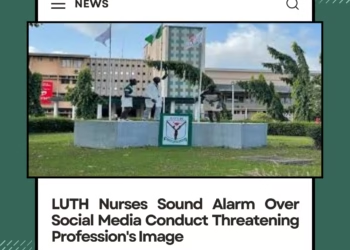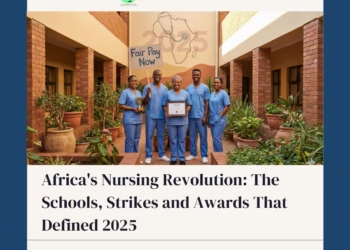Fellow Nurses Africa | Lagos, Nigeria | 3 July, 2025
Billions Saved, Nurses Lost: The True Cost of International Nursing Recruitment
The global healthcare system faces a critical ethical challenge: the systematic recruitment of nurses from developing nations by wealthier countries, resulting in significant economic and human losses for the world’s most vulnerable regions.
At the recent International Council of Nurses (ICN) Congress in Helsinki, compelling evidence was presented, revealing how high-income nations save billions by exploiting nurse migration while failing to equitably compensate source countries. Fellow Nurses Africa presents this professional analysis to highlight the urgent need for reform in international nursing recruitment practices.

Economic Disparities in Nurse Recruitment
According to the World Health Organization’s State of the World’s Nursing report, approximately 25% of nurses in high-income countries are foreign-born, with many originating from low- and middle-income nations facing their own healthcare workforce shortages. Wealthy nations, such as Canada, which has saved over C$1 billion in training costs by recruiting internationally, are collectively avoiding tens of billions in expenses by relying on nurses trained abroad.
However, the countries that invest heavily in educating these nurses—often the world’s poorest—receive minimal or no compensation. In some instances, developing nations are offered as little as $1,000 per nurse, a sum that grossly undervalues their contribution. Howard Catton, ICN’s Chief Executive Officer, described this practice as “a form of economic sleight of hand,” noting that wealthy nations deliberately offset domestic training costs by exploiting the resources of developing countries, exacerbating global healthcare inequities.
The Economic and Social Value of Nursing
Nurses are indispensable to global health and economic stability. The World Economic Forum projects that a $1.3 trillion investment in nursing and social care jobs in the United States alone could yield $3.1 trillion in GDP returns. Globally, nurses are pivotal in improving population health, fostering economic growth, and building resilience against crises such as pandemics and climate change.
Despite this, nursing remains undervalued by policymakers. Mr. Catton emphasized, “Leaders often cite the cost of hiring nurses to justify reduced spending in other sectors, yet fail to prioritize investments in nursing education and retention.” He highlighted a stark comparison: the cost of a single stealth bomber could fund 100,000 nurses or the World Health Organization’s $2 billion annual budget. “Health and defense are both critical to global security,” he stated, urging a balanced approach that prioritizes nursing as a cornerstone of public health.
A Call for Ethical Recruitment and Accountability
The ICN has issued a resolute call for reform, encapsulated in the principle: “If you take, you must give back.” Dr. José Luis Cobos Serrano, ICN President, advocated for high-income countries to adopt ethical recruitment practices and provide proportional compensation to developing nations. He proposed redirecting a portion of the billions saved into a global fund to strengthen nurse education in source countries and suggested debt relief for nations losing their healthcare workforce.
The ICN also urges a revision of the WHO Global Code of Practice on the International Recruitment of Health Personnel to include binding commitments for fair compensation. Without such measures, the Code risks facilitating exploitation rather than fostering equity. Additionally, addressing inadequate working conditions, insufficient compensation, and gender-based violence against nurses is critical to reducing migration driven by necessity.
Implications for African Healthcare Systems
For African nations, the impact of nurse migration is particularly severe. The loss of skilled nurses to wealthier countries weakens already strained healthcare systems, hindering efforts to address pressing challenges such as infectious diseases and maternal health. The ICN’s call for action resonates strongly with African nurses, who remain vital to their communities despite systemic challenges.
A Path to Global Healthcare Equity
The international nursing recruitment crisis demands immediate action. Wealthy nations must invest in self-sufficient workforce planning, uphold ethical recruitment standards, and provide meaningful compensation to developing countries. Simultaneously, African governments should prioritize improved working conditions and retention strategies to sustain their nursing workforce.
Fellow Nurses Africa aligns with the ICN in advocating for a global healthcare system rooted in equity and justice. Nurses are not commodities; they are the foundation of health and prosperity. Policymakers, healthcare leaders, and stakeholders must act decisively to end this exploitation, ensuring that the value of nurses is recognized and respected worldwide.
Fellow Nurses Africa is the independent voice of African nurses, dedicated to educating, informing, and supporting the nursing profession.










